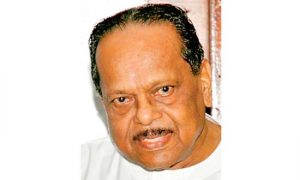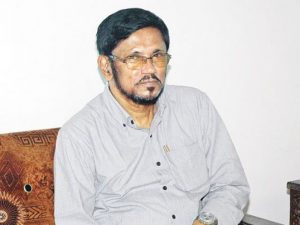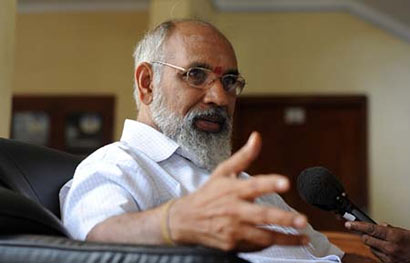Colombo, October 2 (The New Indian Express): After a seven year lull following the end of Eelam War IV, the politics of confrontation and a culture of intolerance appear to be coming back to dominate Tamil politics in the Northern Province of Sri Lanka.
A small emerging group of radicals yearning for a return to the politics of confrontation with the Sri Lankan state in which negotiations on the basis of give and take has no place, is trying to impose its will on other political groups by the use of strong arm methods and disruptive tactics.
Tamil moderates fear that, as in the past, the silent majority, which does not approve of this confrontationist approach, may be forced, for the sake of survival, to bow to the dictates of this small but aggressive group.
The main ground for fearing such an outcome is past experience. In the mid and late 1970s, the Tamil moderates deliberately and unwisely created political space for extremist youth and encouraged them, but only to be subdued and consumed by them within no time.
The extremists did away with moderate democratic leaders. Finally, the Liberation Tigers of Tamil Eelam (LTTE) either exterminated rival militant leaders or forced them to become camp followers, to become the sole and uncompromising representatives of the Tamil people.
The current inadequate response of the Sirisena-Wickremesinghe government to the basic demands of the Tamils in terms post-war justice, restitution, resettlement and restoration of normalcy, and the perceived inability of Tamil elected representatives to get the government to move on these matters in a convincing way, are paving the way for the emergence of radicals as a force in Northern Tamil politics.

In their defense, moderates elected representatives say that the Sirisena-Wickremesinghe regime deserves to be given adequate time to devise policies, structures and procedures to render post-war justice and restitution without alienating the majority Sinhalese who still have a lurking fear of losing power to the Tamils and other minorities backed by regional and world powers.
The government has taken several steps towards reconciliation and is in the process of setting up institutions, including a new constitution, to usher in an inclusive Sri Lankan polity based on ethnic equity. A wide spread consultative process on all key matters has already been completed.
That being so, the moderates argue that hiking demands, which are bound to have an equal opposite reaction from the Sinhalese majority, will only upset the apple cart and bring the process of reconciliation to a grinding halt. The moderates also point out that the international community, which is keen on giving the Sri Lankan government a fair chance, and will look unfavorably at attempts by Tamil and Sinhalese radicals to sabotage the process. The Tamils may lose the international support they have been enjoying so far.

But these warnings are going unheeded. The Tamil Peoples’ Council (TPC), a collection of people and organizations wedded to the politics of confrontation and drawing inspiration from the now defunct LTTE, has been making demands calculated to raise the hackles of the majority Sinhalese, such as withdrawal of the Sri Lankan armed forces from the North and a stop to the settlement of Southern Sinhalese in the North and the putting up of Buddha statues.
The TPC and its fellow travelers have brushed under the carpet a host of issues which the common Tamil man and woman faces in post-war North – issues which, when resolved, will make a big difference to the lives of the hoi polloi and release energies which could be harnessed for economic development.
Though the radicals did not make an electoral impact in the 2013 provincial council elections and in the July 2015 parliamentary elections, they have gained visibility in the past year with Chief Minister C.V.Wigneswaran heading the pack. His assuming the mantle of leader has made a difference as he is former Supreme Court judge. He is constantly in the media due to his hard hitting speeches at every public function he attends. The Tamil media, wedded as it is to confrontationist politics traditionally, is backing him fully.
But whether with Wigneswaran’s tacit approval or not, radicals have been trying to put Tamil politics into an ideological straight jacket by browbeating those with a different opinion or approach.
Since Jaffna University is dominated by radicals, the Vice Chancellor allowed a function to mark LTTE leader Thileepan’s “martyrdom” but denied permission to moderates to hold a seminar to commemorate the assassination of human rights worker Rajini Thiranagama.

At a function held on Saturday to launch a book on the constitutional history of Sri Lanka from a Tamil perspective, a group of radicals associated with the TPC heckled and shouted down TNA leader M.A.Sumanthiran; the Leader of the Opposition in the NPC, S.Thavarajah; and the Tamil United Liberation Front (TULF) leader, V.Anandasangaree.
According to those who were heckled, the trouble makers were not more than five or six but the media portrayed the disturbance as a mass protest. However, the more disturbing part was the attitude of the rest of the 600-strong audience who, as in the past, allowed trouble makers to get away with their act.
Sumanthiran had been “gheroed” by a similar small bunch of youth in Australia last year while the rest of the audience watched helplessly. Opposition Leader Thavarajah said that he was advised by well wishers not to voice contrary opinions in gatherings like this. He now says that he will not speak at meetings organized by people who cannot tolerate different view points.

Economist Ahilan Kadirgamar fears that if this trend is allowed to continue, it could gain legitimacy and become uncontrollable eventually as it happened in the past.
However Sumanthiran fees that the TPC has very little support among the Tamil masses, its support in the Tamil media notwithstanding. Human rights activist Rajan Hoole says that the Tamil masses are more sensible than many of their leaders and will not like to wantonly wreck the Sri Lankan government’s reconciliation process.


























































